
Béla Tarr
Рождение : 1955-07-21, Pécs, Hungary
История
Béla Tarr (born July 21, 1955) is an acclaimed Hungarian film director. Much of his work is marked by philosophical elements and a pessimistic view of humanity. His films utilize unconventional storytelling methods, such as long takes and/or non-professional actors to achieve realism.
Debuting with his film Family Nest in 1979, Tarr underwent a period of what he refers to as "social cinema", aimed at telling mundane stories about ordinary people, often in the style of cinema vérité. Over the next decade, the cinematography of Tarr's films gradually changed; Damnation (1988) was shot with languid camera movement aimed at establishing ambience. It marked Tarr's earliest experimentation with philosophical themes, focused mostly on bleak and desolate representations of reality. Sátántangó (1994) and Werckmeister Harmonies (2000) continued this approach; both are considered by some critics to be among the greatest films ever made. Tarr would later compete in the 2007 Cannes Film Festival with his film The Man From London.
Frequent collaborators of Tarr include his wife Ágnes Hranitzky, novelist László Krasznahorkai, film composer Mihály Víg, cinematographer Fred Kelemen, and actress Erika Bók. After the release of his film The Turin Horse (2011), Tarr announced his definitive retirement from film direction. He has been teaching at the Sarajevo Film School since.
Description above from the Wikipedia article Béla Tarr, licensed under CC-BY-SA, full list of contributors on Wikipedia.

Self (archive footage)
The panorama of human affairs encounters the “man with a movie camera”. His playground has no boundaries, his curiosity no limits. Characters, situations and places pitch camp in the life of a humanity that is at once the viewer and the thing viewed. But what are the last days of this humanity? Have they already passed? Are they now or still to come?

Producer
A world in lock-down. As a global pandemic unfolds, 13 international filmmakers pen cinematic letters from their places of isolation, whether home or far from home. A work of accidental science-fiction from the Bistrik7 collective, graduates of Béla Tarr's Sarajevo film.factory.
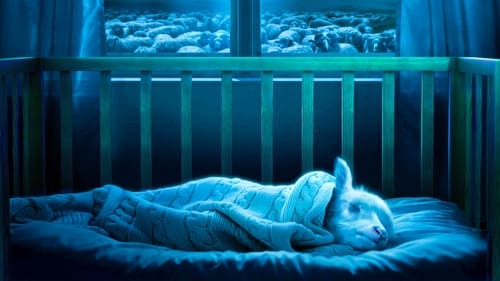
Executive Producer
Бездетная пара фермеров проживает в туманной исландской глуши. Однажды одна из их овец приносит загадочное существо, которое супруги забирают в дом и решают растить как собственного ребёнка.

Producer
В обычный рабочий день Паола начинает чувствовать, что упускает что-то интересное в своей жизни.
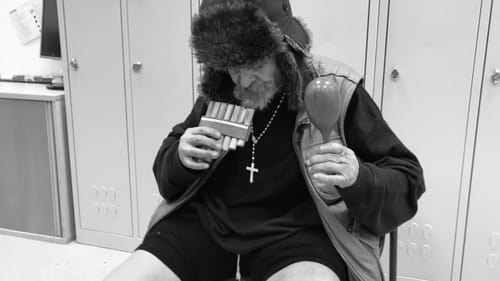
Director
Presents moving images of society’s outsiders, the impoverished and oppressed, whose lives are contrasted with the opulent surroundings of contemporary Vienna.

Executive Producer
A filthy Con-Man stumbles into an old Balkan village where he tries to win the people by calling himself a doctor.

Writer
A young boy plays an accordion in a shopping mall. Béla Tarr picks up the camera one more time to shoot his very last scene. It is his anger about how refugees are treated in Europe, and especially in Hungary, that drove him to make a statement.

Director
A young boy plays an accordion in a shopping mall. Béla Tarr picks up the camera one more time to shoot his very last scene. It is his anger about how refugees are treated in Europe, and especially in Hungary, that drove him to make a statement.

Producer
Two starving kids find a dead body in the ruins.

Consulting Producer
Miners in a Bosnian coal mine. The camera silently watches over the miners working tirelessly amidst endless noise and the flickering light of lanterns.

An abandoned tumbledown theater in the outback of Paraíba state is the initial setting of a film about cinema, which explores the testimonials of the novelist and playwright Ariano Suassuna and other filmmakers such as Ruy Guerra, Julio Bressane, Ken Loach, Andrzej Wajda, Karim Ainouz, José Padilha, Hector Babenco, Vilmos Zsigmond, Béla Tarr, Gus Van Sant and Jia Zhangke. They all respond to two basic questions: why do they make movies and why do they serve the seventh art. The filmmakers share their thoughts about time, narrative, rhythm, light, movement, the meaning of tragedy, the audience‘s desires and the boundaries with other forms of art.

Executive Producer
The experiment presents a cinematic poem to filmmaking and film itself. Directed by eleven filmmakers, all under the vision of Bela Tarr's 'film.factory', delving into what keeps us making films.

Himself
A documentary about the making of The Turin Horse, the last film directed by Hungarian master Béla Tarr.

Producer
A cowherd, sheep, and the wind, all have an equal presence in the village. Death and life are one and indivisible.

Producer
Более 500 любовных сцен из культовых кинофильмов — как подсказка в размышлениях о том, что есть «настоящий фильм о любви» и «настоящий мужчина и настоящая женщина».

Producer
Anthology film made as an act of protest against Hungarian government of Viktor Orban.

Béla Tarr
A film within a film within a film within a fish.

Screenplay
В 1889 году на улице итальянского города Турина случилось странное происшествие. Кучер хлестал кнутом свою старую лошадь, которая отказывалась тронуться с места. Неожиданно к повозке подбежал хорошо одетый господин с пышными усами и обнял животное за шею, при этом горько зарыдав. Это был не кто иной, как всемирно известный философ Фридрих Ницше. Его с трудом увели от лошади, а когда привели домой, выяснилось, что он не в себе. Ницше поместили в лечебницу для душевнобольных, где он провел остаток жизни… Но что же случилось с лошадью и ее хозяином? Об этом и расскажет фильм.

Director
В 1889 году на улице итальянского города Турина случилось странное происшествие. Кучер хлестал кнутом свою старую лошадь, которая отказывалась тронуться с места. Неожиданно к повозке подбежал хорошо одетый господин с пышными усами и обнял животное за шею, при этом горько зарыдав. Это был не кто иной, как всемирно известный философ Фридрих Ницше. Его с трудом увели от лошади, а когда привели домой, выяснилось, что он не в себе. Ницше поместили в лечебницу для душевнобольных, где он провел остаток жизни… Но что же случилось с лошадью и ее хозяином? Об этом и расскажет фильм.

Himself
Hungarian filmmaker Béla Tarr and film critic Howard Feinstein discuss his innovative filmography, punctuated by clips from his films.

Producer
In the closed world of a Catholic monastery shortly after World War II the post-war insecurity exacerbates the walls. A new world order has arrived. The monastic life begins to break down as some of the monks start to morally decline.
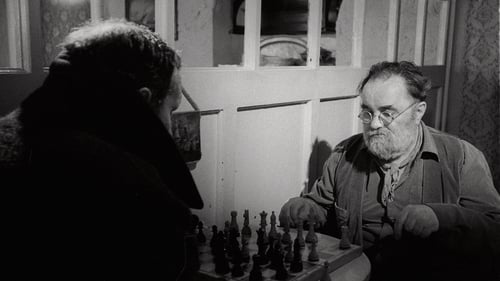
Associate Producer
По одноименному роману бельгийского писателя Жоржа Сименона «L'Homme de Londres» (1933). Маллойн, стрелочник железнодорожной станции в порту, живёт в ветхой квартире со своей женой Камелией и дочерью Генриеттой. Однажды во время ночной смены он становится свидетелем происходящей на причале драки. Из окна своей башни Маллойн видит, как один из участников падает в воду вместе с портфелем, а второй спешит скрыться. Маллойн подбирает портфель, в котором находится крупная денежная сумма. Маллойн прячет деньги и никому не рассказывает о них. На следующий день он замечает следящего за ним Брауна. Вечером Браун безуспешно ищет портфель около места вчерашней драки и замечает Маллойна в окне башни...

Screenplay
По одноименному роману бельгийского писателя Жоржа Сименона «L'Homme de Londres» (1933). Маллойн, стрелочник железнодорожной станции в порту, живёт в ветхой квартире со своей женой Камелией и дочерью Генриеттой. Однажды во время ночной смены он становится свидетелем происходящей на причале драки. Из окна своей башни Маллойн видит, как один из участников падает в воду вместе с портфелем, а второй спешит скрыться. Маллойн подбирает портфель, в котором находится крупная денежная сумма. Маллойн прячет деньги и никому не рассказывает о них. На следующий день он замечает следящего за ним Брауна. Вечером Браун безуспешно ищет портфель около места вчерашней драки и замечает Маллойна в окне башни...

Director
По одноименному роману бельгийского писателя Жоржа Сименона «L'Homme de Londres» (1933). Маллойн, стрелочник железнодорожной станции в порту, живёт в ветхой квартире со своей женой Камелией и дочерью Генриеттой. Однажды во время ночной смены он становится свидетелем происходящей на причале драки. Из окна своей башни Маллойн видит, как один из участников падает в воду вместе с портфелем, а второй спешит скрыться. Маллойн подбирает портфель, в котором находится крупная денежная сумма. Маллойн прячет деньги и никому не рассказывает о них. На следующий день он замечает следящего за ним Брауна. Вечером Браун безуспешно ищет портфель около места вчерашней драки и замечает Маллойна в окне башни...

Producer
Johanna, a young drug addict, falls into a deep coma after an accident. Doctors miraculously manage to save her from death's doorstep. Touched by grace, Johanna cures patients by offering her body. The head doctor is frustrated by her continued rejection of him and allies himself with the outraged hospital authorities. They wage war against her but the grateful patients join forces to protect her. This is a filmic and musical interpretation of the Passion of Joan of Arc.
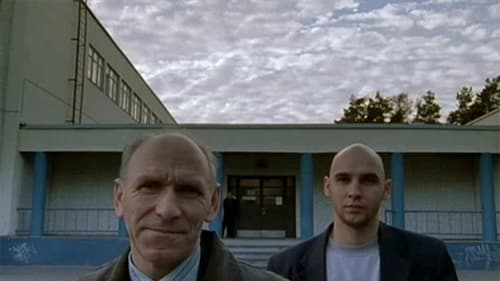
Director
Twenty-five films from twenty-five European countries by twenty-five European directors.
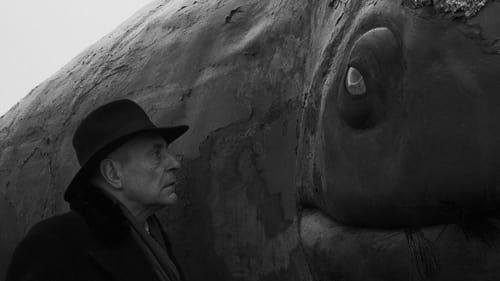
Associate Producer
Янош работает на почте, увлекается астрономией и помогает по хозяйству своему дяде-музыковеду, который убежден: музыкальная гармония, возникшая в XVII веке благодаря композитору Андреасу Веркмейстеру и сохранившаяся по сей день, неправильная и фальшивая. А если нет настоящей гармонии в музыке — ее нет и в мире, и в существовании отдельного человека, и в жизни провинциального венгерского городка. Янош видит, что вокруг сгущается атмосфера страха, ненависти и безумия, что город — на пороге большой неотвратимой беды.

Co-Writer
Янош работает на почте, увлекается астрономией и помогает по хозяйству своему дяде-музыковеду, который убежден: музыкальная гармония, возникшая в XVII веке благодаря композитору Андреасу Веркмейстеру и сохранившаяся по сей день, неправильная и фальшивая. А если нет настоящей гармонии в музыке — ее нет и в мире, и в существовании отдельного человека, и в жизни провинциального венгерского городка. Янош видит, что вокруг сгущается атмосфера страха, ненависти и безумия, что город — на пороге большой неотвратимой беды.

Director
Янош работает на почте, увлекается астрономией и помогает по хозяйству своему дяде-музыковеду, который убежден: музыкальная гармония, возникшая в XVII веке благодаря композитору Андреасу Веркмейстеру и сохранившаяся по сей день, неправильная и фальшивая. А если нет настоящей гармонии в музыке — ее нет и в мире, и в существовании отдельного человека, и в жизни провинциального венгерского городка. Янош видит, что вокруг сгущается атмосфера страха, ненависти и безумия, что город — на пороге большой неотвратимой беды.

Writer
Свой второй (и последний) фильм венгерский режиссер Дьёрдь Фехер снял по роману Джеймса Кейна «Почтальон всегда звонит дважды». Действие в фильме перенесено в Венгрию 30-х годов. Герой Яноша Держи работает помощником у хозяина автомастерской (Джоко Росич) и влюбляется в его жену (Ильдико Баншаги). Любовники вместе планируют убийство мужа. После того, как их план провалился, они решают отказаться от своей идеи и просто уйти вдвоем. Но затем совершают вторую попытку, оказавшуюся более успешной…

Director
Revisits of locations on the Great Hungarian Plain - the puszta - that were used in Tarr's Sátántangó and Werckmeister harmóniák. Recitations of short lyric poems by Hungary's national poet Sándor Petofi.
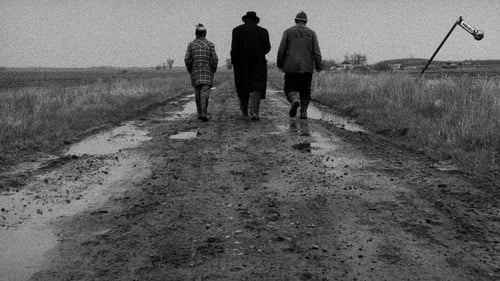
Director
Действие фильма разворачивается на территории фермы, доживающей свои последние дни. Несколько ее жителей решают уйти, похитив деньги, вырученные всеми участниками коммуны перед ее закрытием. Однако их планы нарушают слухи о появлении красноречивого и харизматичного Иримиаша, пропавшего полтора года назад и считавшегося погибшим.

Screenplay
Действие фильма разворачивается на территории фермы, доживающей свои последние дни. Несколько ее жителей решают уйти, похитив деньги, вырученные всеми участниками коммуны перед ее закрытием. Однако их планы нарушают слухи о появлении красноречивого и харизматичного Иримиаша, пропавшего полтора года назад и считавшегося погибшим.

Director
Collection of documentary shorts by various acclaimed directors

Writer
The last ship (Utolsó hajó) is leaving the quay. Sirens are sounding.

Director
The last ship (Utolsó hajó) is leaving the quay. Sirens are sounding.
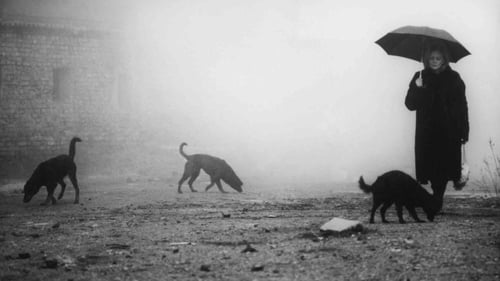
Writer
«Проклятие» рассказывает историю Каррера, подавленного мужчины, влюбленного в замужнюю женщину, которая поет в местном баре “Титаник”.

Director
«Проклятие» рассказывает историю Каррера, подавленного мужчины, влюбленного в замужнюю женщину, которая поет в местном баре “Титаник”.
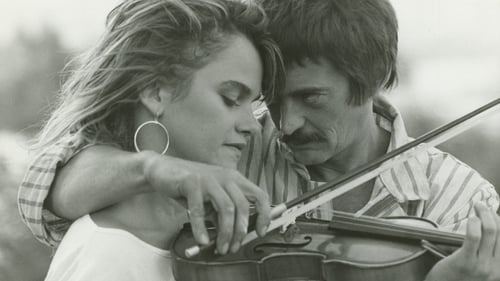
Zoltai is a Hungarian professor who returns home after a visit to the United States. Following a television interview, he commits suicide and leaves a note for his longtime friend Dr. Bardocz. The doctor and Zoltai's colleague Komindi join the police in investigating what drove the man to suicide.

Writer
In this dense setting, the inhabitants of a large, claustrophobic apartment reveal their darkest secrets, fears, obsessions and hostilities.

Director
In this dense setting, the inhabitants of a large, claustrophobic apartment reveal their darkest secrets, fears, obsessions and hostilities.

Screenplay
A Hungarian TV version of the play shot in just two takes.

Director
A Hungarian TV version of the play shot in just two takes.
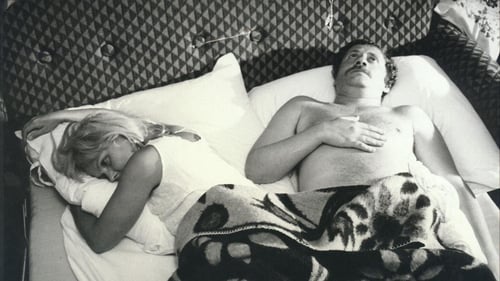
Writer
Using verite conventions, a young couple with a baby and a child are worn away by the monotony of their lives.

Director
Using verite conventions, a young couple with a baby and a child are worn away by the monotony of their lives.
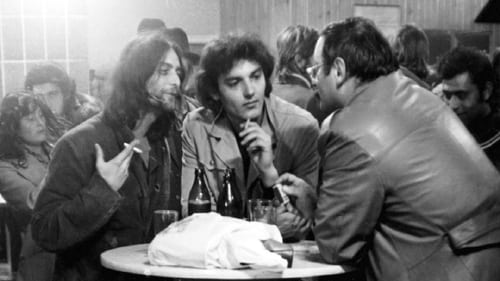
Writer
A talented but irresponsible violinist ruins his marriage with his drinking and antisocial behaviour.

Director
A talented but irresponsible violinist ruins his marriage with his drinking and antisocial behaviour.

Writer
Családi tüzfészek (aka Family Nest) is an intimate portrayal of a family slowly disintegrating under various pressures in late 1970s communist Hungary. The plot of the film is deceptively simple, with the occasional momentous event--including one that's relatively shocking, but plot in a conventional sense is not the focus here.

Director
Családi tüzfészek (aka Family Nest) is an intimate portrayal of a family slowly disintegrating under various pressures in late 1970s communist Hungary. The plot of the film is deceptively simple, with the occasional momentous event--including one that's relatively shocking, but plot in a conventional sense is not the focus here.

Director
A student film by Béla Tarr, from 1979. Presumed lost until very recently.

Writer
Documentary about a hostel for workers. An old worker suspected of stealing a motor gets fired from the factory and must leave the hostel.

Director
Documentary about a hostel for workers. An old worker suspected of stealing a motor gets fired from the factory and must leave the hostel.



















